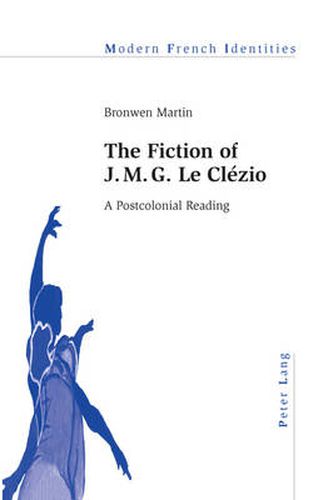Readings Newsletter
Become a Readings Member to make your shopping experience even easier.
Sign in or sign up for free!
You’re not far away from qualifying for FREE standard shipping within Australia
You’ve qualified for FREE standard shipping within Australia
The cart is loading…






This title is printed to order. This book may have been self-published. If so, we cannot guarantee the quality of the content. In the main most books will have gone through the editing process however some may not. We therefore suggest that you be aware of this before ordering this book. If in doubt check either the author or publisher’s details as we are unable to accept any returns unless they are faulty. Please contact us if you have any questions.
Since the Nobel Prize in Literature was awarded to J. M. G. Le Clezio in 2008, there has been a wave of new interest in his oeuvre. This book traces the evolution of the writer’s postcolonial thought from his early works to his groundbreaking autobiographical novel Revolutions, arguably his most subversive text to date. The author shows how Le Clezio’s critique of colonialism is rooted in an early denunciation of capitalism and philosophical dualism, and sheds new light on the crucial roles played by Jean-Paul Sartre, Aime Cesaire and Frantz Fanon in his development.
The author’s close reading of Revolutions reveals a complex system of interconnections between the colonial conflicts from the 1700s to the 1900s, with recurrent patterns of violence, cultural repression and racism. The issue of neocolonialism is addressed and the persistence of the colonial mindset in contemporary Europe and Westernized countries is shown to echo the findings of Paul Gilroy, Max Silverman and Etienne Balibar. The book concludes with an examination of the utopian elements underpinning Revolutions, establishing close affinities with the work of Edouard Glissant and developing the notion of permanent revolution. Themes explored include those of storytelling, cultural memory, cultural identity, language, intertextuality and interculturality.
$9.00 standard shipping within Australia
FREE standard shipping within Australia for orders over $100.00
Express & International shipping calculated at checkout
This title is printed to order. This book may have been self-published. If so, we cannot guarantee the quality of the content. In the main most books will have gone through the editing process however some may not. We therefore suggest that you be aware of this before ordering this book. If in doubt check either the author or publisher’s details as we are unable to accept any returns unless they are faulty. Please contact us if you have any questions.
Since the Nobel Prize in Literature was awarded to J. M. G. Le Clezio in 2008, there has been a wave of new interest in his oeuvre. This book traces the evolution of the writer’s postcolonial thought from his early works to his groundbreaking autobiographical novel Revolutions, arguably his most subversive text to date. The author shows how Le Clezio’s critique of colonialism is rooted in an early denunciation of capitalism and philosophical dualism, and sheds new light on the crucial roles played by Jean-Paul Sartre, Aime Cesaire and Frantz Fanon in his development.
The author’s close reading of Revolutions reveals a complex system of interconnections between the colonial conflicts from the 1700s to the 1900s, with recurrent patterns of violence, cultural repression and racism. The issue of neocolonialism is addressed and the persistence of the colonial mindset in contemporary Europe and Westernized countries is shown to echo the findings of Paul Gilroy, Max Silverman and Etienne Balibar. The book concludes with an examination of the utopian elements underpinning Revolutions, establishing close affinities with the work of Edouard Glissant and developing the notion of permanent revolution. Themes explored include those of storytelling, cultural memory, cultural identity, language, intertextuality and interculturality.